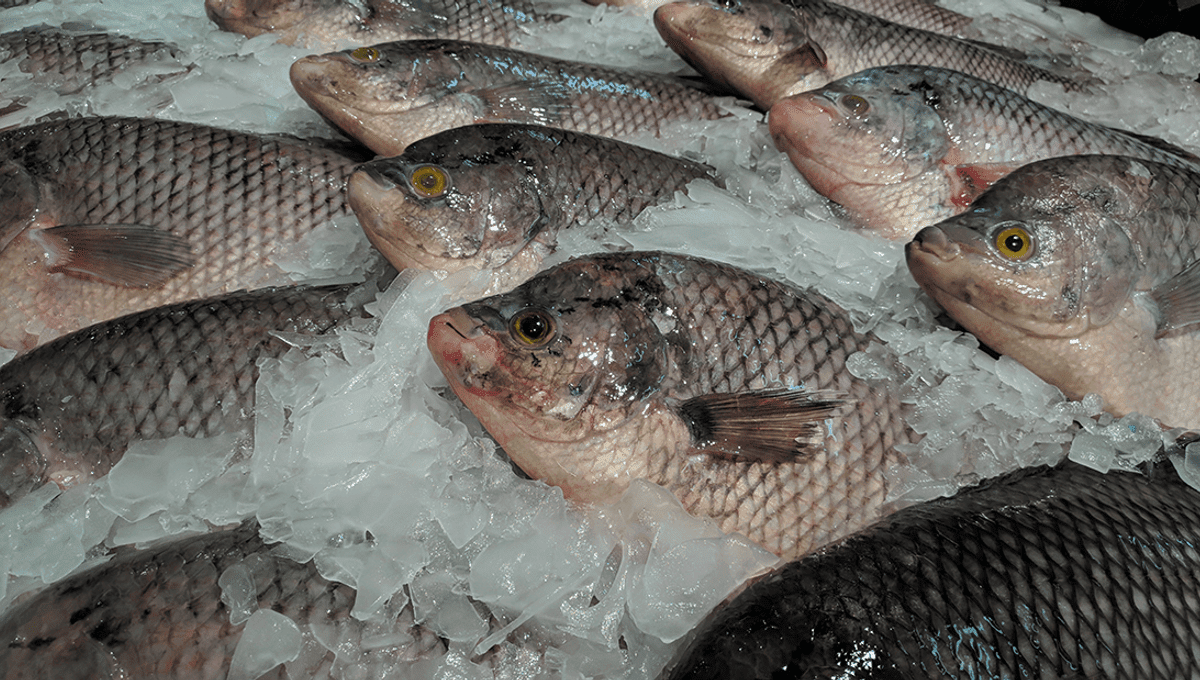
You may have seen a story recently about a woman who bought a batch of frozen fish to eat in London, only to discover a few days later that one of the fish was moving, appearing as if it was trying to breathe through its gills.
Cindy Lao’s partner Paul Lewis-Borman considered putting the fish out of its misery, but Cindy persuaded him to put the fish in their bathtub.
“The carp was listless for a while, but after 20 minutes those gills were certainly going,” Paul told Metro. The two added that the fish, now named Lazarus, has since been rehoused to another woman’s koi carp pond.
So, can fish really survive being frozen? The short answer is yes, there are species out there that can freeze and return to their lives after thawing relatively unharmed.
According to reports, the fish was a crucian carp, which happen to be particularly good at surviving freezing temperatures and environments with a lack of oxygen. The fish can survive for several months in anoxic (oxygen-deficient) waters, as their lakes freeze and seal them in. While going without oxygen, the fish converts toxic lactic acid into ethanol, letting it diffuse out slowly across its gills.
“During their time in oxygen-free water in ice-covered ponds, which can last for several months in their northern European habitat, blood alcohol concentrations in crucian carp can reach more than 50 mg per 100 millilitres, which is above the drink drive limit in these countries,” Dr Michael Berenbrink, an evolutionary physiologist at the University of Liverpool, explained in a statement about related research.
“However, this is still a much better situation than filling up with lactic acid, which is the metabolic end product for other vertebrates, including humans, when devoid of oxygen.”
Going without oxygen, for perhaps up to months, isn’t without consequence. A study that tested the carps’ ability to memorize and navigate mazes before and after placing them in an oxygen-deprived tank found that they suffered “moderate brain damage“, but it was repaired fairly quickly.
It’s not clear how frozen Cindy and Paul’s fish was, but assuming it wasn’t frozen solid it is plausible. If it was frozen solid, that would be remarkable. One study from 2022 notes that “as far as we know, no experiment has been done to show that crucian carp can survive freezing”. That’s not to say it’s impossible.
“It may be possible that crucians during torpor in bottom sediments of small ponds survive winter anoxia by the freeze point lowering effects of ethanol,” the authors added. “There are some other vertebrates such as at least four amphibians and some reptiles that tolerate freezing.”
One such animal is the wood frog (Rana sylvatica), which can survive two-thirds of its body water being completely frozen. The frogs have higher levels of the cryoprotectants (“antifreeze”) urea and glucose in their plasma, lowering the freezing temperature of the frog’s bodily fluids.
Source Link: A Woman's Frozen Fish Reportedly Came Back To Life. Is That Even Possible?